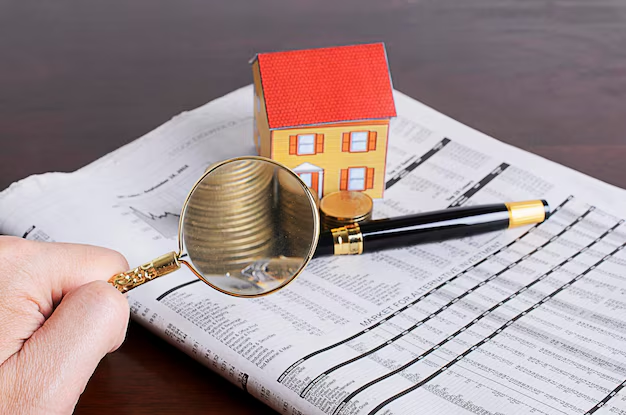Demystifying Property Tax Assessment: What Homeowners Need to Know
Understanding property tax can often feel like navigating a complex puzzle filled with pieces that don't always seem to fit together. Property tax assessment is one of those pieces, and although it can be confusing, it's crucial for homeowners to comprehend its role in the larger property tax landscape. Let's break it down, exploring what tax assessment entails, why it matters, and how it impacts your property taxes.
What is Property Tax Assessment?
Property tax assessment is the process through which local governments determine the value of a property for taxation purposes. This assessed value forms the basis upon which annual property taxes are calculated, influencing how much a homeowner will ultimately pay.
The Role of the Tax Assessor
The individual's title varies—property appraiser, tax assessor—but their role is consistent: to estimate a property’s market value. They analyze various factors, including the property's location, size, and market trends.
Factors Influencing Property Assessment
Several elements come into play when assessing a property:
- Location: Properties in desirable locations tend to have higher assessed values.
- Property Features: Size, age, construction quality, and features like swimming pools or renovated kitchens impact valuations.
- Market Conditions: A booming housing market can boost property assessments due to increased demand and sales prices.
Why Understanding Property Tax Assessment Matters
Knowing how your property is assessed impacts not only your taxes but also your financial planning. Navigating this area with confidence can help ensure you're not overpaying and can prepare you for any future changes.
Evaluating Financial Commitments
Understanding the assessed value of your property helps you gauge annual tax liabilities, an essential component in budgeting.
Challenging Assessments
If you believe the assessed value is too high, you have the right to appeal the assessment. This involves presenting evidence suggesting the assessment doesn't reflect your property's actual market value.
The Property Tax Calculation Process
The tax assessed value isn't the amount you pay. Instead, it's multiplied by the local tax rate, or millage rate, to determine your tax bill.
Millage Rates Explained
- Understanding Millage: Expressed in "mills," where one mill equates to one-tenth of a cent. Therefore, a property assessed at $100,000 with a mill rate of 20 results in $2,000 of property taxes (20 mills multiplied by $100,000).
Exemptions and Deductions
Some homeowners may qualify for exemptions, which reduce the taxable assessed value:
- Homestead Exemption: Reduces taxes for primary residences, provided certain conditions are met.
- Veterans and Seniors Exemptions: Specific eligibility requirements apply, often offering significant tax relief.
Navigating Property Tax Assessment in Various Scenarios
Property tax assessments differ widely based on location and specific property characteristics. Let's manage expectations around some common scenarios.
New Homeowners
When purchasing a new property, be prepared for potential tax increases. New assessments often reflect current market values, which may be higher than previous assessments.
Property Improvements
Adding a new room, installing high-end appliances, or making renovations can increase assessed value. It's vital to factor these changes when estimating future taxes.
Changes in Property Use
Switching a property from residential to commercial use—or vice versa—can influence assessed valuations and applicable tax rates.
Tips for Managing Property Tax Assessments
Understanding and engaging with your property tax assessment can save you money and headaches.
Regular Reviews
Review your property assessment regularly—mistakes can happen, and you don’t want to pay more than necessary. Look for inconsistencies compared to similar properties.
Keep Track of Local Market Trends
Stay aware of housing market changes that might influence your property’s value, helping you anticipate changes in assessment.
Prepare for Appeals
If challenging an assessment, gather evidence like sales data for similar properties or independent appraisals. An organized appeal strengthens your case.
Practical Takeaways 📝
- 🗺️ Know Your Locale: Understand the specific assessment criteria in your area; it can vary significantly.
- 🔍 Stay Informed: Regularly review assessments and market trends to stay ahead.
- 📑 Document Everything: Keep detailed records of any changes or discrepancies you find.
- 🧾 Consider Expertise: Professional support can be invaluable in complex assessment appeals or understanding nuanced tax scenarios.
Summary Table: Property Tax Assessment Key Points
| Aspect | Key Takeaways |
|---|---|
| Tax Assessor's Role | Determines property value for tax purposes based on various factors. |
| Assessment Factors | Includes location, property features, and market conditions. |
| Calculating Taxes | Assessed value × Millage rate = Tax owed. |
| Exemptions/Deductions | Can significantly reduce taxable value; know what you qualify for. |
| Appeals Process | Opportunity to correct over-assessment with proper documentation. |
Engaging with your property tax assessment proactively can demystify the process and empower you with control over financial commitments. A clear understanding ensures you’re not only compliant but are also making informed decisions, contributing to a more predictable and manageable tax landscape.

Related Topics
- Are Property Taxes Tax Deductible
- Can I Get a Property Tax Refund
- Can I Pay Property Tax Online
- Can I Pay Property Tax With Credit Card
- Can Property Tax And Condo Fee Be Deducted In Maryland
- Can You Claim Property Taxes On Your Income Tax
- Can You Claim Property Taxes On Your Tax Return
- Can You Claim Your Property Taxes On Your Income Tax
- Can You Pay Property Tax Monthly
- Can You Totally Not Pay Property Tax Texas
